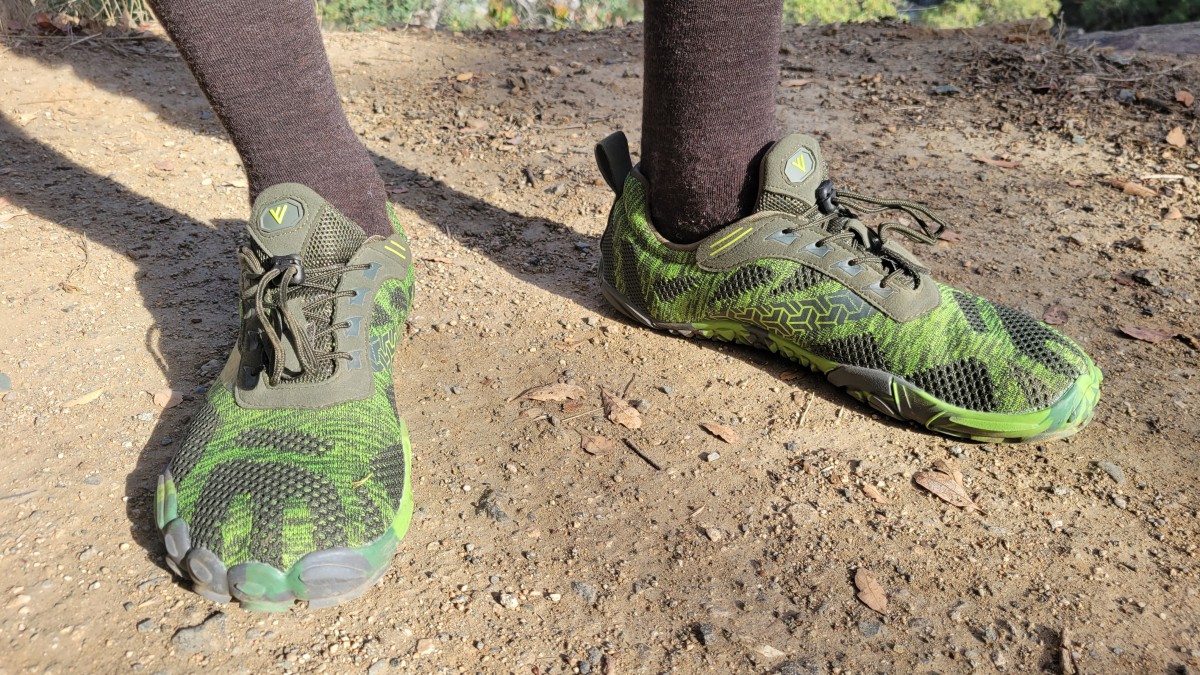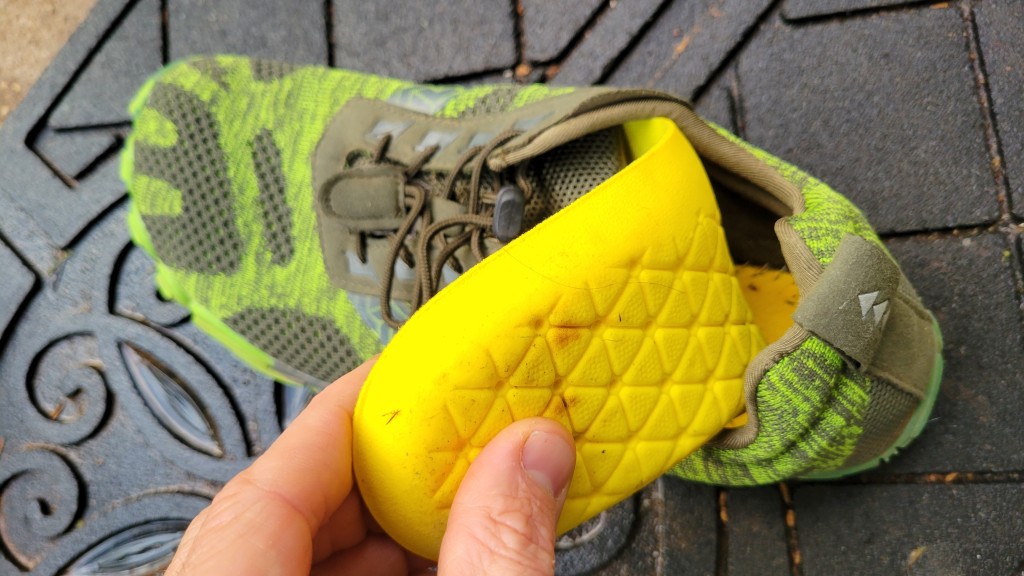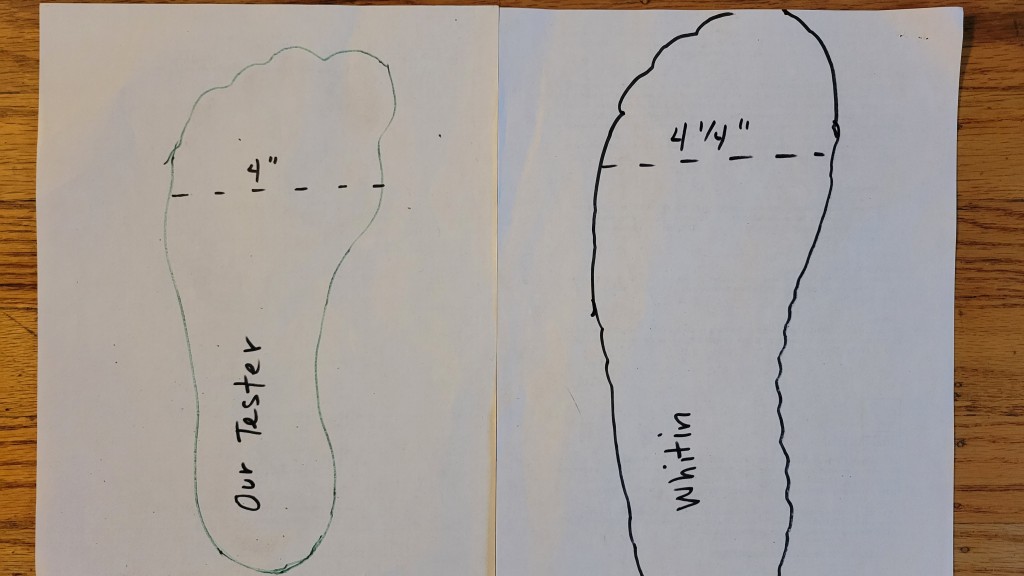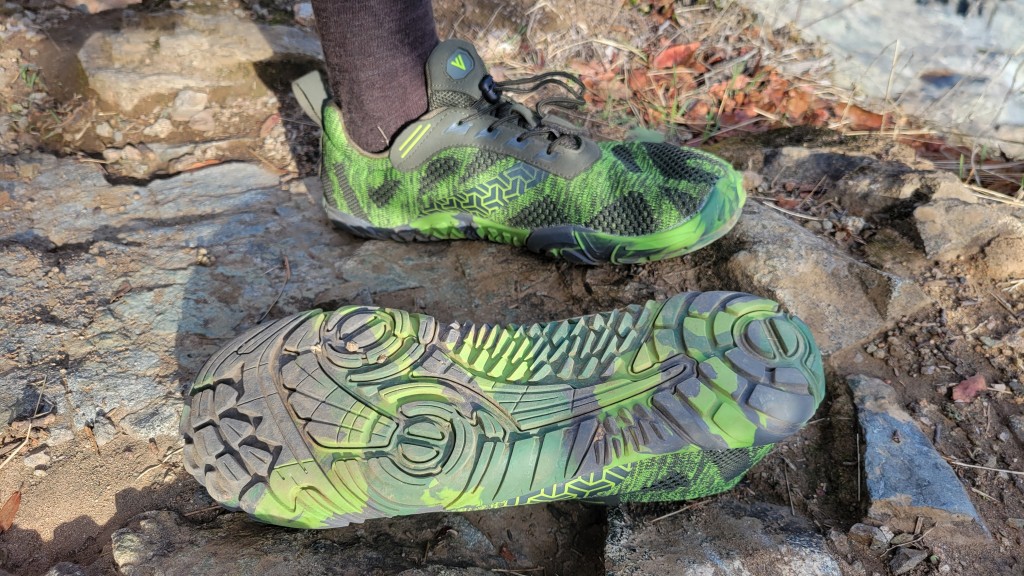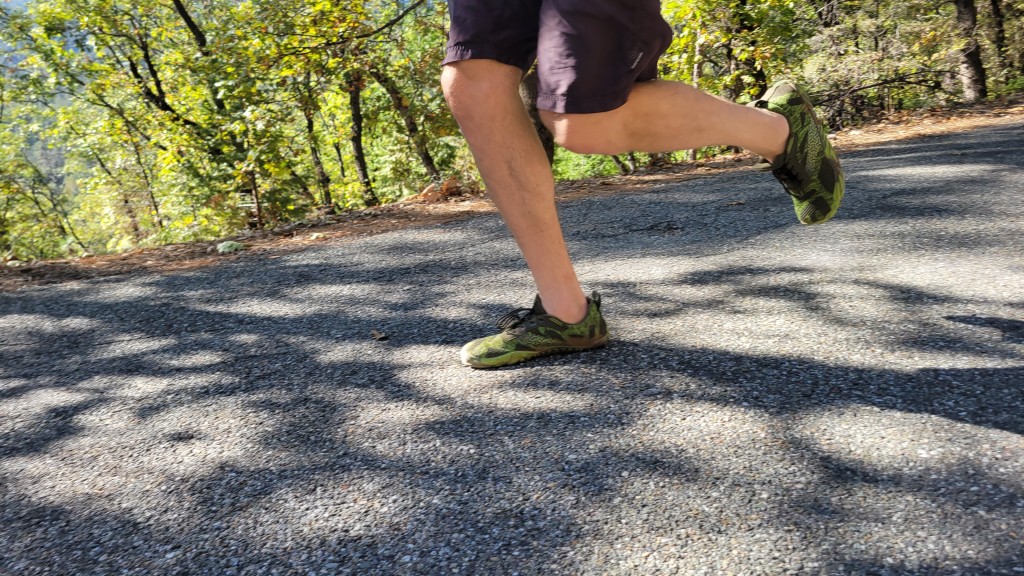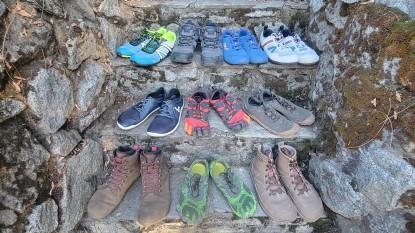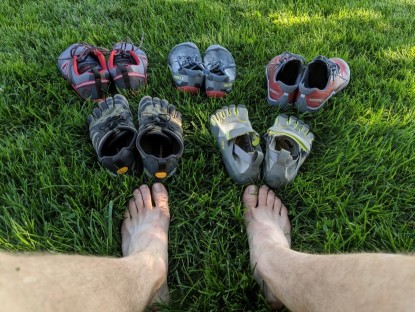Our Verdict
Compare to Similar Products
 This Product
Whitin Cross Trainer | |||||
|---|---|---|---|---|---|
| Awards | Best Bang For Your Buck | Best Overall Barefoot Shoe | Best Lightweight Barefoot Shoe | ||
| Price | $42 List $41.99 at Amazon | $135 List $125.00 at Amazon | $79.68 at Amazon Compare at 3 sellers | Check Price at REI | $89.95 at REI |
Overall Score  |
|||||
| Star Rating | |||||
| Bottom Line | If you're looking for a high-value trail runner option then look no further | The next evolution of FiveFinger shoe built to tackle any trail condition | These minimalist shoes will help you feel one with the ground and all its intricacies | This wide-soled hiking shoe lends protection without sacrificing ground feedback | Huarache-inspired straps are fashion and function on this hybrid minimalist runner |
| Rating Categories | Whitin Cross Trainer | Vibram V-Trail 2.0 | Merrell Vapor Glove 6 | Xero Shoes DayLite... | Xero Shoes Prio |
| Ground Feedback (30%) | |||||
| Stability (20%) | |||||
| Traction (20%) | |||||
| Weight (15%) | |||||
| Durability (15%) | |||||
| Specs | Whitin Cross Trainer | Vibram V-Trail 2.0 | Merrell Vapor Glove 6 | Xero Shoes DayLite... | Xero Shoes Prio |
| Style | Barefoot | Barefoot | Barefoot | Barefoot | Barefoot |
| Best For | Trail running | Trail running | Trail running | Hiking | Trail running |
| Stack Height | 6.5 mm (5 mm base + 1.5 mm insole) | 5.7 mm (3.7 mm base + 2 mm insole) | 6 mm (4 mm base + 2 mm lugs) | 10 mm (5.5 mm base + 3.5 mm lugs + 1 mm insole) | 8.5 mm (5.5 mm base + 3 mm insole) |
| Heel to Toe drop | 0 mm | 0 mm | 0 mm | 0 mm | 0 mm |
| Measured Weight (per shoe) | 10.2 oz (size 43EU) | 7.3 oz (size 43EU) | 5.6 oz (size 9.5) | 11.4 oz (size 9.5) | 8.9 oz (size 9.5) |
| Outsole | Rubber | 3.7mm, Vibram megagrip rubber w/3D cocoon mesh | Vibram ecostep, 30% recycled rubber, 2mm lug | Feeltrue rubber | Feeltrue rubber |
| Midsole | None | None | None | None | None |
| Insole | Yes, not specified | 2mm EVA | 30% recycled EVA foam wrapped in 100% recycled mesh | Not specified | Not specified |
| Upper Material | Stretchy mesh | Water repellent polyester | Recycled breathable mesh | Not specified | Vegan faux leather |
Our Analysis and Test Results
New to the barefoot scene, the Whitin Cross Trainer offers a notable barefoot experience at an affordable price. Coming in at half the price of most other barefoot offerings, these shoes don't skimp on features. The wide toe box allows the foot to spread out and feel the ground, offering good structural stability. In motion, the trail-ready tread grips both hard and soft surfaces — that is, until it becomes wet, and then river rock becomes slick. With the insole removed, it's a mere 5mm between your foot and the ground, and there's zero drop between the heel and toe. Even if the cheaper materials don't hold up, at such a bargain price, you can afford to replace the Whitin once or twice per season if needed. These trainers are an all-around great choice for a more affordable barefoot running option.
Performance Comparison
Ground Feedback
Given that these are not the thinnest shoes, we were surprised by the ground feedback they offered. Without the insole, the outsole and midsole together are 5mm thick. This proved to be enough to protect our feet from rugged trail surfaces while also allowing us to feel the ground beneath us. The sole is made of a non-specific rubber, which is pliable enough to provide excellent flexion.
The removable insole is 1.5mm thick, and we noticed that it's thicker in the heel than the forefoot. This means that this shoe, with the insole, isn't technically a “zero drop” as barefoot shoes are meant to be. Without the insole, you still have some padding. The midsole is made of the same spongy material as the insole, giving you some cushion either way. We didn't notice a big performance difference without the insole, other than there was a bit more room for our foot to slide around in the shoe.
Stability
We were skeptical at first whether this bargain bin shoe would live up to the barefoot name. But we were pleasantly surprised to find that the toe box of the Whitin Cross Trainer is one of the wider ones we tested. This shoe left our toes feeling plenty free to spread out and offer good foundational stability. Our toes could dig into and push off the ground with each stride.
This shoe cinches onto the foot utilizing a quick drawstring that does a good job of tightening around the ankle. The shoe's design does not do a great job of hugging the rest of the foot, though. The result of this phenomenon is that the foot tends to slide around in the shoe, especially on rugged terrain or slopes. This is an important consideration for a shoe that seems to be built for trail running, and it does affect overall stability. That said, we still found our confidence on the trail after adjusting to this particular performance quirk.
Traction
This is one of the metrics where this shoe shines. The tread is designed to give support under the strike points — namely the two front balls and the heel of the foot. These areas have circular designs to help absorb impact and protect the foot. The arch area is covered with ridges that help dig and push when on uneven ground and protect the arch from raised rocks and roots.
The tread did a great job of gripping on a variety of surfaces, from loose dirt to slick river rock. One drawback to note is that the rubber becomes extremely slippery on hard surfaces once wet. We had some water crossings where we had to hobble over the river rock until the surface shed enough water to stick once again. Still, we were impressed with the traction on these trail running trainers.
Weight
At 10.2 ounces per shoe, this is the heaviest pair of the running-focused shoes we tested. Only the hiking shoes and boots weighed more than the Cross Trainer. Despite this fact, we found them to feel light and comfortable on the foot while running.
Most of the weight of this shoe seems to be in the rugged sole. The rubber is relatively thick compared to other trainers. The upper is made of porous, non-specified “stretchy mesh” that certainly doesn't add much weight. We'd definitely choose another, lighter shoe for road running. When we hit the rocky trail, though, we're grateful for every millimeter of shock-absorbing rubber underfoot that the Whitin offers.
Durability
We don't often expect cheaper products to have great durability. In this case, that expectation pans out. The primary complaints from researching user reviews about this shoe are that the sole wears quickly and that the upper unravels or rips easily. While we didn't have any issues with this during our testing, we can imagine it happening. The mesh is porous and relatively loose and could catch easily on sticks or other sharp objects. The outsole and insole are made of cheaper materials and will wear more quickly than the more expensive shoes in our lineup.
That said, these shoes are such a great value that you could buy two pairs for the next cheapest shoe that we tested. We put the Cross Trainer through some serious trail testing and we didn't notice any obvious weak points. The outsole is welded to the upper and actually separated less than some of the more expensive shoes. This may have something to do with the pliability of the mesh upper--here the less expensive and less durable material may be working in the shoes favor. Also, the rubber wraps around the sides and front, mostly protecting the upper from trail abuse. While these aren't the most durable shoes on the market, their value is in the savings. The other weak point of note is in the construction of the insole and midsole, both of which are made of a cheap, spongy material that is likely to wear with time and use.
Should You Buy the Whitin Cross Trainer?
If you're looking for the best bargain on some barefoot trail runners, this is a great option. While we'd hesitate to recommend the Whitin if you're mostly running in wet and/or hard-surfaced conditions, under pretty much any other trail condition, this shoe shines. I has one of the thickest barefoot soles, but don't let that fool you into thinking that you won't feel the trail. These are definitely “minimalist” in the sense of minimizing support and protection underfoot. So, if you're not used to barefoot running, then you may want to consider one of the hybrid options that are closer to a conventional shoe. And if you are a barefoot runner, we'd recommend giving these a try. With such a value and a variety of barefoot features, you may be pleasantly surprised.
What Other Barefoot Shoes Should You Consider?
If you're looking for a rugged trail runner and don't mind paying a bit more, then you'll certainly want to read about our favorite overall shoe, the Vibram V-Trail 2.0. If you run or work out mostly on roads or hard surfaces, check out the Vivobarefoot Primus Lite III. And if you're looking for a trail runner that will hug your foot like a barely felt barefoot glove, then you may want to try the Merrell Vapor Glove 6.


